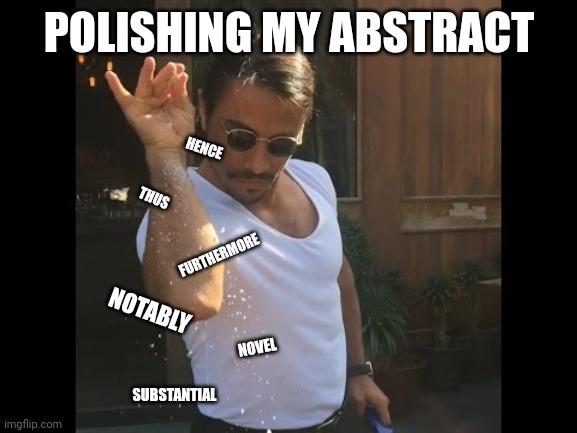this post was submitted on 12 Sep 2024
584 points (97.6% liked)
Science Memes
13931 readers
981 users here now
Welcome to c/science_memes @ Mander.xyz!
A place for majestic STEMLORD peacocking, as well as memes about the realities of working in a lab.

Rules
- Don't throw mud. Behave like an intellectual and remember the human.
- Keep it rooted (on topic).
- No spam.
- Infographics welcome, get schooled.
This is a science community. We use the Dawkins definition of meme.
Research Committee
Other Mander Communities
Science and Research
Biology and Life Sciences
- !abiogenesis@mander.xyz
- !animal-behavior@mander.xyz
- !anthropology@mander.xyz
- !arachnology@mander.xyz
- !balconygardening@slrpnk.net
- !biodiversity@mander.xyz
- !biology@mander.xyz
- !biophysics@mander.xyz
- !botany@mander.xyz
- !ecology@mander.xyz
- !entomology@mander.xyz
- !fermentation@mander.xyz
- !herpetology@mander.xyz
- !houseplants@mander.xyz
- !medicine@mander.xyz
- !microscopy@mander.xyz
- !mycology@mander.xyz
- !nudibranchs@mander.xyz
- !nutrition@mander.xyz
- !palaeoecology@mander.xyz
- !palaeontology@mander.xyz
- !photosynthesis@mander.xyz
- !plantid@mander.xyz
- !plants@mander.xyz
- !reptiles and amphibians@mander.xyz
Physical Sciences
- !astronomy@mander.xyz
- !chemistry@mander.xyz
- !earthscience@mander.xyz
- !geography@mander.xyz
- !geospatial@mander.xyz
- !nuclear@mander.xyz
- !physics@mander.xyz
- !quantum-computing@mander.xyz
- !spectroscopy@mander.xyz
Humanities and Social Sciences
Practical and Applied Sciences
- !exercise-and sports-science@mander.xyz
- !gardening@mander.xyz
- !self sufficiency@mander.xyz
- !soilscience@slrpnk.net
- !terrariums@mander.xyz
- !timelapse@mander.xyz
Memes
Miscellaneous
founded 2 years ago
MODERATORS
you are viewing a single comment's thread
view the rest of the comments
view the rest of the comments

Going on a tangent here: While I fully agree with the above, there is an amount of knowledge after which fact checking becomes bothersome, and some people just skip fact checking overall. One could argue that, while knowledge is never useless, unchecked knowledge might become bothersome or dangerous.
See flatearthers, scientology, etc. for extreme examples.
Counter-point:
There are also many widely accepted beliefs in the scientific community that are based on misinterpreted data/results published by others, unconfirmed, and out-dated beliefs. I agree with you, but I also think we too quickly dismiss those who question the paradigm and many in translational/translated fields (like medicine) continue operating on out-dated beliefs because they don't want to or don't have the time to keep up with current research.
Case in point: the justification for 6-foot spacing at the beginning of the COVID pandemic. Particles do not magically drop off after a few feet, this was justified in medical textbooks based on a misinterpretation of a particle physicist's publication. Another example: many organic chemistry classes still teach that FTIR is a qualitative method only despite many examples of FTIR quantitation and the widespread adoption of this method throughout companies that produce instruments and analysis software.
We should encourage trying to disprove that which we think is true and unquestionable so that we can fix our past mistakes and better inform our future work.